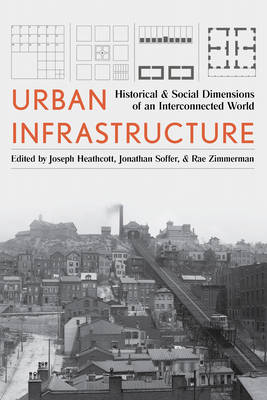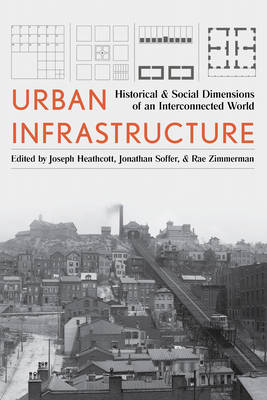
Door een staking bij bpost kan je online bestelling op dit moment iets langer onderweg zijn dan voorzien. Dringend iets nodig? Onze winkels ontvangen jou met open armen!
- Afhalen na 1 uur in een winkel met voorraad
- Gratis thuislevering in België vanaf € 30
- Ruim aanbod met 7 miljoen producten
Door een staking bij bpost kan je online bestelling op dit moment iets langer onderweg zijn dan voorzien. Dringend iets nodig? Onze winkels ontvangen jou met open armen!
- Afhalen na 1 uur in een winkel met voorraad
- Gratis thuislevering in België vanaf € 30
- Ruim aanbod met 7 miljoen producten
Zoeken
Urban Infrastructure
Historical and Social Dimensions of an Interconnected World
€ 91,95
+ 183 punten
Omschrijving
Urban Infrastructures creates space for an encounter between historians, humanists, and social scientists who seek new methodological approaches to the history of urban infrastructure. It draws on recent work across history, anthropology, science and technology studies, geography, resilience/sustainability, and other disciplines to explore the social effects of infrastructure. The volume rejects narrow conceptions of infrastructure history as only the history of public works, and instead expands the definition to all business enterprises and public bodies that provide the goods and services essential for the day-to-day lives of most people. Essays examine traditional artifacts such as roads, highways, and waterworks, as well as nontraditional topics like regimes of heating and cooling, the processing and distribution of food, and even the metaphysics of electromagnetic infrastructure. Contributors reveal both the material grounding of urban social relations and the social life of material infrastructure. In the end, they show that infrastructure profoundly reshapes urban life even as residents fight to reshape infrastructure to their own ends.
Specificaties
Betrokkenen
- Uitgeverij:
Inhoud
- Aantal bladzijden:
- 300
- Taal:
- Engels
- Reeks:
Eigenschappen
- Productcode (EAN):
- 9780822946380
- Verschijningsdatum:
- 11/10/2022
- Uitvoering:
- Hardcover
- Formaat:
- Genaaid
- Afmetingen:
- 152 mm x 230 mm
- Gewicht:
- 612 g

Alleen bij Standaard Boekhandel
+ 183 punten op je klantenkaart van Standaard Boekhandel
Beoordelingen
We publiceren alleen reviews die voldoen aan de voorwaarden voor reviews. Bekijk onze voorwaarden voor reviews.










